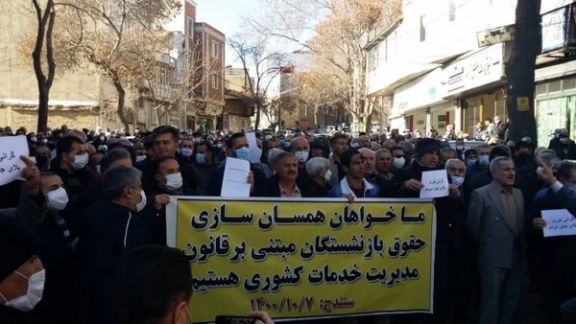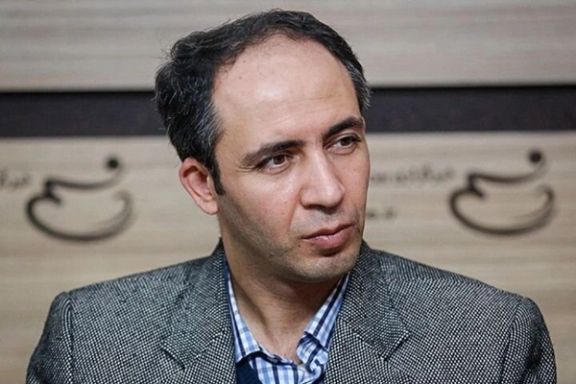Iran Needs $400 Billion In Investments To Survive, Economist Says

Iran needs $400 billion in investments if it is to save itself and its exhausted, oil-dependent economy in the next few years, an economist in Tehran has said.

Iran needs $400 billion in investments if it is to save itself and its exhausted, oil-dependent economy in the next few years, an economist in Tehran has said.
In the past 50 years Iran has sold two trillion dollars of oil with little economic growth to show for it, Vahid Shaghaghi Shahri, professor of economics at Iran’s Kharazmi University told Khabar Online websiteon Sunday.
Asked if negotiation to revive Iran’s 2015 nuclear deal succeed in Vienna and United States’ sanctions are lifted will save the economy, Shahri responded that Iran faces plenty of international restrictions and impediments, but what is equally important is the quality of its internal governance.
Shahri also mentioned multiple crises in the history of the Islamic Republic as a factor in preventing a decent rate of economic growth. But in fact, except the first few years of the Iran-Iraq war in the early 1980s, every crisis was a choice made by the leaders of the regime.
Shahri, living in Iran, could not openly make such a comment, but in fact, the decision to create and maintain a state-controlled economy unfriendly to foreign investments, lack of social and political freedoms, unfair advantage to regime insiders, especially the Revolutionary Guard are some of the self-inflicted wounds.

Shahri in the interview referred to two rounds of international and US sanctions in 2010s and said called it a “lost decade”. From 2010 to 2020 the average rate of economic growth was zero, he said and added, “What is important is that after a decade of economic crisis Iran needs to take special action to save the economy from exhaustion and decline.”
The country needs $400 billion in investments in the current decade, Shahri argued, $130 billion only to maintain its fossil fuels production.
The amount needed to revitalize Iran’s oil and natural gas sector mentioned by Shahri is indeed less than what oil minister Javad Owji mentioned in November. He told a budget planning meeting that Iran needed to invest $160 billion in its oil and gas sector or face declining output and eventually imports of fuels.
Shahri also pointed out that for the first time in Iran’s modern history, infrastructure depreciation has surpassed the rate of investments. Insisting that this is a serious crisis, he said that while oil prices are at a recent high of $80 pb, Iran has failed to resolve the nuclear issue and lift sanctions, losing precious time.
Shahri voiced concern that in US Congressional elections in November the Republicans will make gains and will start “to do naughty things” against Iran, so it is better to make a deal on the nuclear issue now. The Islamic Republic also needs to resolve the FATF issue, he urged.
The Financial Action Task Force or FATF, an intergovernmental watchdog, has put Iran on its blacklist for failing to adhere to international conventions against money laundering and financing of terrorism.
Shahri warned that even if Iran resolves it nuclear dispute with the West, “We will face three tough years ahead,” as government coffers are empty and there is a crisis to pay pensions to millions of retired government workers. Moreover, the age of high global dependence on oil is coming to an end and Iran can face a situation of surviving without its main revenue source.